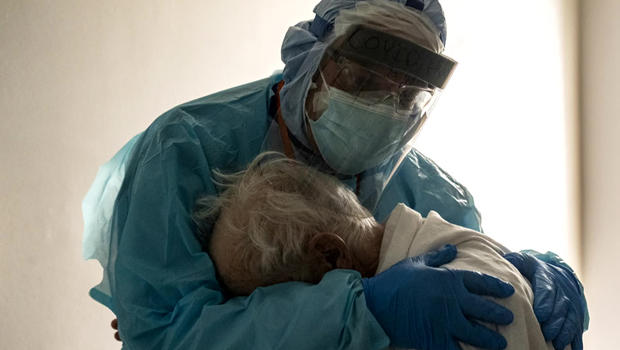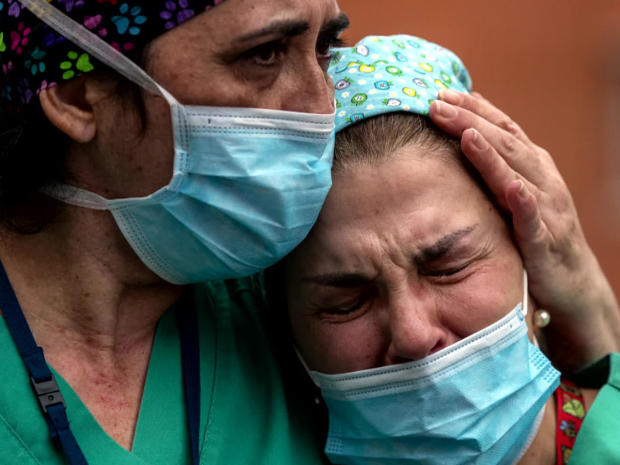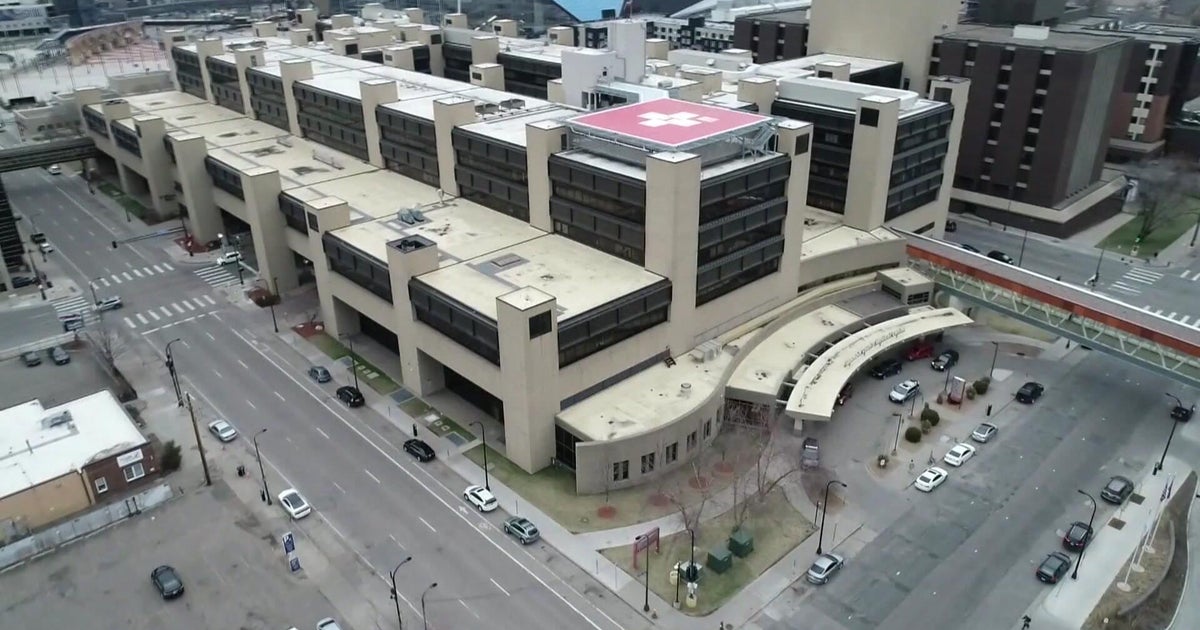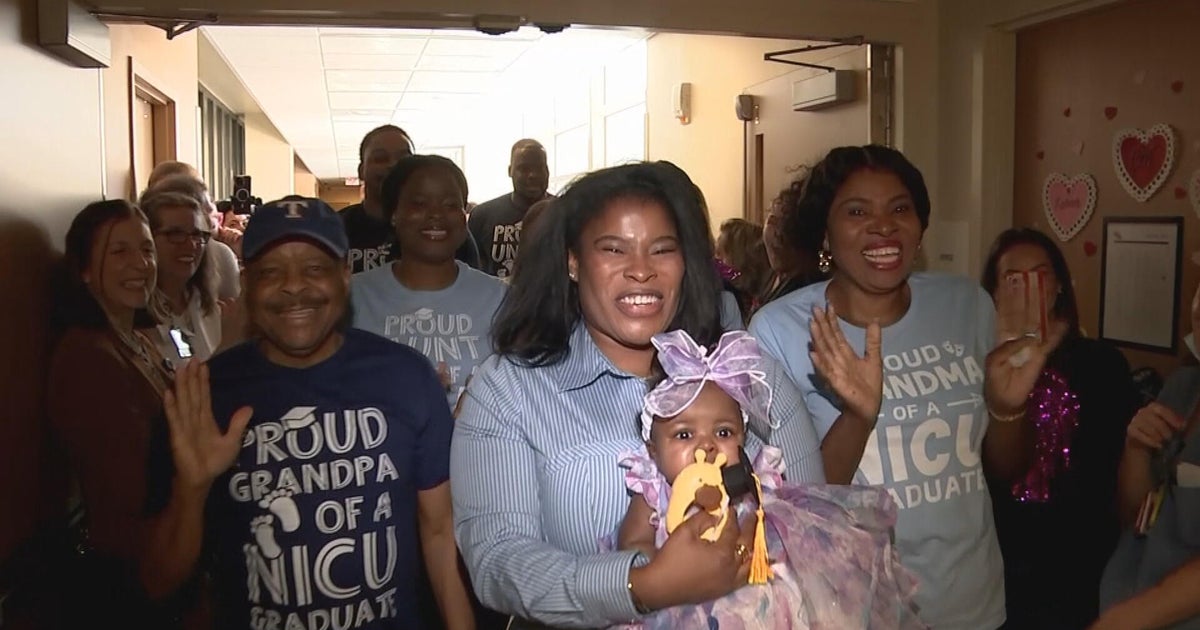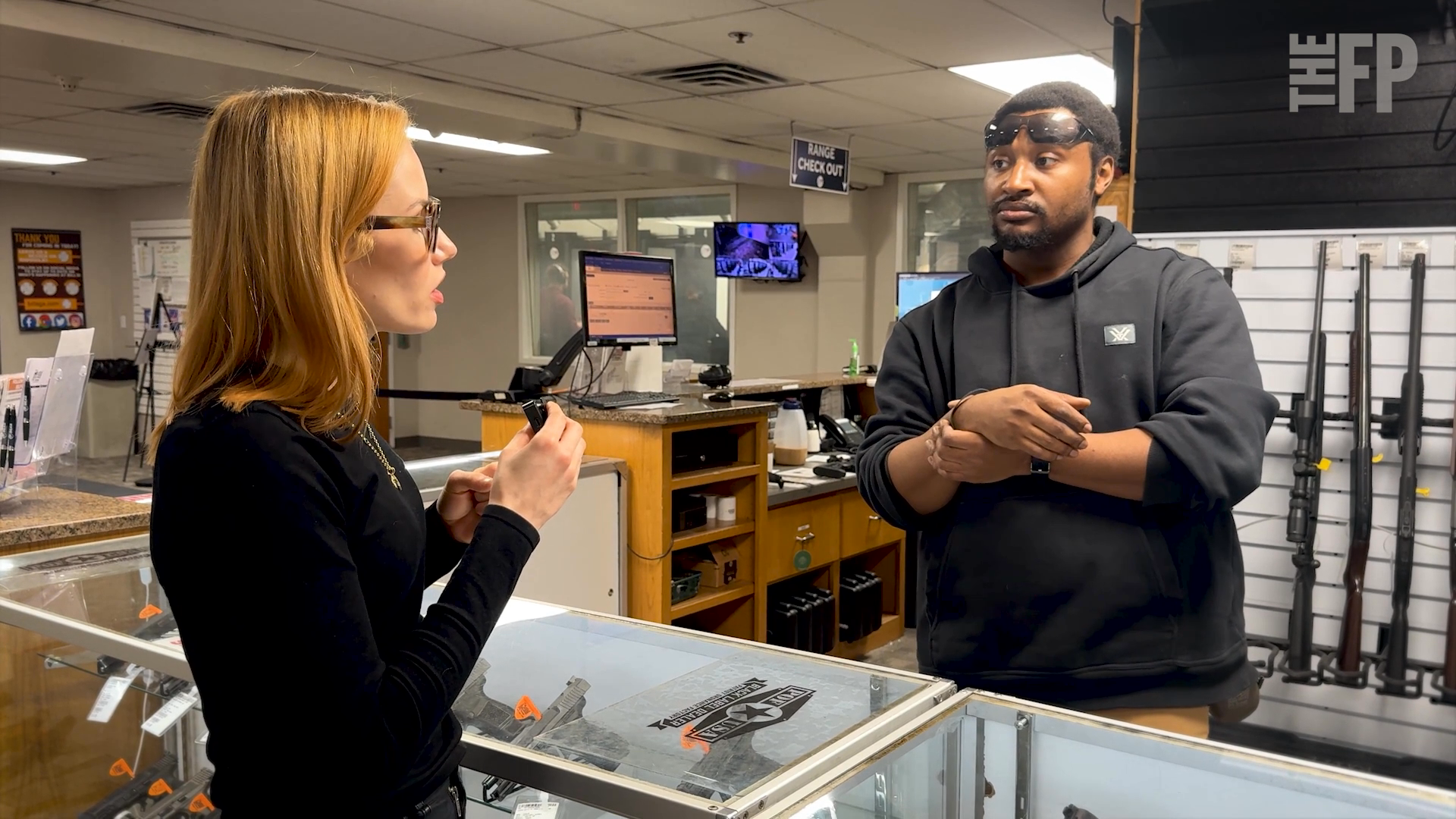Honoring warriors on the frontlines of COVID-19
This has been a devastating year for healthcare providers. In a new war against an invisible enemy, the soldiers – my colleagues around the world – have often found themselves fighting without weapons or armor. Their best medicine: empathy.
As hospitals filled up, doctors and nurses have had to treat patients in unlikely places, from a tent in Central Park, to a parking lot in Nevada …
"Nobody who has gone into medicine ever thought they would be providing care in a parking garage," said Dr. Jacob Keeperman, an ICU doctor at Renown Regional Medical Center in Reno, Neva.
- Nevada hospital treats patients in parking garage amid coronavirus surge ("CBS Evening News")
… or using refrigerated trucks to help keep up with a soaring death toll that now tops 300,000 in the U.S. alone.
When the pandemic struck New York City last March, personal protective equipment was in such short supply, some nurses were forced to wear trash bags. PPE continues to be rationed, as daily cases have now surged to 250,000.
The toll is written on their faces, and heard in their voices. "I can't talk to a patient without a mask on," said Dr. Shirlee Xie, of Hennepin Healthcare in Minneapolis. "I can't touch them without gloves on. You know, they die and they never see our faces."
- Doctor's message to COVID-19 doubters and non-maskers: "You walk in my shoes" ("CBS Evening News")
The CDC estimates more than 900 health care workers have died from COVID, but it's a hard number to track, and is likely much higher.
Their deaths are remembered in a Twitter account (US HCWs Lost to COVID19), and other makeshift memorials across the country.
"Never in my wildest nightmares would I ever have thought that we would ever see something that would be killing this many people," said nursing manager Janet Baum.
Back in April, I spent two weeks helping out on the COVID wards at NYU Langone Health, where I'm a professor of medicine, and saw a microcosm of the professionalism playing out across the globe: physicians, nurses, therapists, social workers, psychologists, those in food and housekeeping services, and so many others all risking their lives to take care of patients with COVID-19.
We're doing everything in our power – and we expect you to do the same:
Wear a mask.
Maintain physical distance.
Wash your hands.
Avoid crowds.
Remember that outdoors is safer than indoors.
And finally, unless there's a medical reason, get a vaccine when it's available.
These vaccines are being developed so quickly because of decades of research. But the FDA and trusted public officials such as Dr. Anthony Fauci have told us no corners were cut. I just got mine last week. Of course, researchers will watch out for any unexpected safety concerns that may emerge.
Last Spring, we all appreciated the applause at 7 o'clock each night. But right now, the very best thing you can do for us ... is not to become our patient.
Story produced by Michelle Kessel. Editor: Kevin McLaughlin.
See also:

